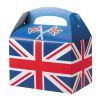|
ESL Forum:
Techniques and methods
in Language Teaching
Games, activities
and teaching ideas
Grammar and
Linguistics
Teaching material
Concerning
worksheets
Concerning
powerpoints
Concerning online
exercises
Make suggestions,
report errors
Ask for help
Message board
|
ESL forum >
Ask for help > spelling
spelling
|

wysiwyg

|
spelling
|
Hi there !
I need your help: I was wondering if you should write the possessive īs or not after a proper noun ending with an s. For example, would you write "Angus īs mother"? I read "Angus � sister" on the web, but I remember hearing Englis people say the pronounce īs: i.e [re-dji-siz] for Regis īs......
|
11 Jun 2011
|
|
|
|

ikebana

|
|
hi I would say that you only drop the /s / when its � a plural form ( ex : the kids � dog / The Parkers � house ). When the /S/ is part of the noun it works as if it were any other letter . So it should be Dennis īs bike / Angus īs car pronounced /Siz/ to identify the double s sound hope that helps Ikebana |
11 Jun 2011
|
|
|

wilwarin32

|
|
Hi! Either way is okay with proper names. You can say Charles � car or Charles īs car. I īve always used and taught the first one.
bye! |
11 Jun 2011
|
|
|

wysiwyg

|
Thank you, that īs what I thought, but I wanted to check, because as I said, I saw "Angus � sister" on the web. Thanks again ! Have a nice weekend !
|
11 Jun 2011
|
|
|

wysiwyg

|
Hi wilwarin, if both are correct, I īll keep the "Angus īs mother": students won īt forget to pronounce the īs if it is not dropped... The more I learn it (and you learn every day when you are curious) the more I notice that English has a very "flexible" grammar, or at least in the way native speakers use it. Am I wrong?
Thank you !
|
11 Jun 2011
|
|
|

yanogator

|
|
and I īve always used and taught īs for all singular nouns, proper or improper. However, as wilwarin32 said, both are OK. Bruce |
11 Jun 2011
|
|
|

almaz

|
|
@wysiwig
No matter how īflexible � the language is, grammar and punctuation aren īt the same thing. The important thing to remember, however, is that they īre inextricably linked in the written language and punctuation helps give your sentences meaning (the apostrophe marks the possessive case here). And like much of English grammar, there is a fair old mix when it comes to usage. Have a squint at this (Wikipedia entry - but you can check the references too) for some info on � singular nouns ending with an -s or a -z sound �.
By the way, the next section deals with English possessives of French nouns ending in a silent -s, -x or -z - which kind of brings us back to Regis... |
11 Jun 2011
|
|
|

yanogator

|
|
Thanks, Alex. The Wikipedia īs entry explains it nicely. I īve always found the "if it īs difficult to pronounce" argument to be humorous. If there were three students named Socrates in my class, then I would have three Socrateses, and I don īt know who would have trouble pronouncing that. The lunch of one of those students would be Socrates īs lunch. As I see it, if a person can pronounce Socrateses, and Socrates īs is pronounced the same, then there is no pronunciation problem. Antifreeze is a thre-syllable word ending in a sibilant (as is Socrates), and I don īt see anyone needing an exception to be able to pronounce its plural - antifreezes. Speaking of plurals of names, though, here in the US, many people use an apostrophe to indicate the plural of a proper name that ends in s. These people would say that I have three Socrates � in my class, and that the lunch I mentioned is Socrates � lunch. Well, I hope I haven īt muddied the waters too much, Bruce |
11 Jun 2011
|
|
|

wysiwyg

|
Thank you for the link and your interesting comment, Almaz. Luckily I won īt have to deal with any of Regis īs concerns any more...
Bruce, I īll have to read your reply twice, but the best for me would be to hear it, of course !
And I īll have to check this nice saying"muddy the waters too much", because I never heard it before...this will be a (partly) study/studious Sunday !
Thank you, gentlemen !
Florence
|
12 Jun 2011
|
|
|